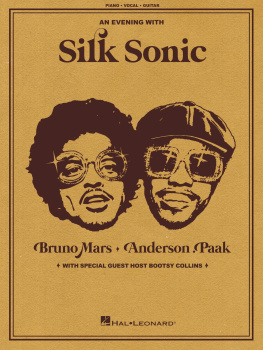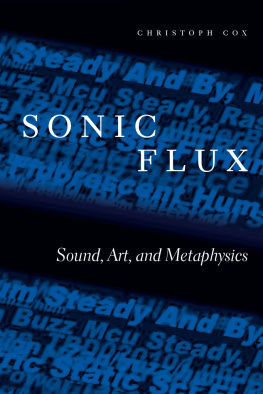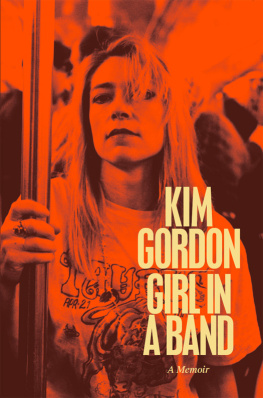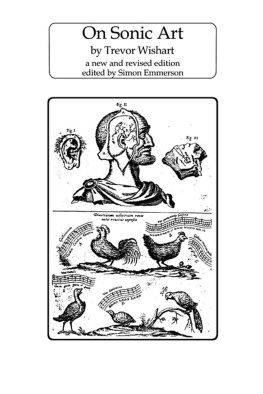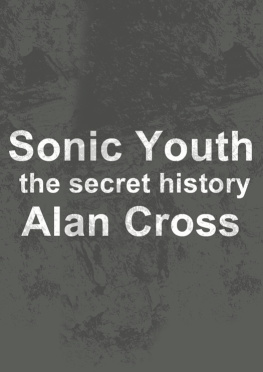First published in the UK in 2013 by
Intellect, The Mill, Parnall Road, Fishponds, Bristol, BS16 3JG, UK
First published in the USA in 2013 by
Intellect, The University of Chicago Press, 1427 E. 60th Street,
Chicago, IL 60637, USA
Copyright 2013 Intellect Ltd
All rights reserved. No part of this publication may be reproduced, stored in a retrieval system, or transmitted, in any form or by any means, electronic, mechanical, photocopying, recording, or otherwise, without written permission.
A catalogue record for this book is available from the
British Library.
Cover designer: Holly Rose
Cover photographer: Jeroen de Kloet
Copy-editor: MPS Technologies
Production manager: Bethan Ball
Typesetting: Planman Technologies
ISBN 978-1-84150-615-9
eISBN 978-1-84150-761-3
Printed and bound by Bell & Bain, UK
This book is not only a testament to our shared interest in Hong Kong popular music, but also to our shared sense of urgency to understand and study Hong Kong and Chinese popular music in the multiple paths and networks we have tried to track and delineate in the chapters to follow. More fundamentally, and perhaps intimately too, this book is a testament to the collaborative nature of knowledge production itself: to the possibility that academic work can be done less solitarily. The past years have seen the two of us discussing which theoretical grounding to take, how to analyse and do justice to the field data, which books to read, and who should write what - as engagingly as we discussed where to wine and dine afterwards. What we would like to say is that academic work can be done together, and with fun.
In the meantime, we are fully and happily aware that we would never have accomplished what we have without the encouragement and support of many others. In particular, we thank Ien Ang, Rey Chow, Chu Yiu Wai, John Nguyet Erni, Anthony Fung, Giselinde Kuipers, Leonie Schmidt and Liesbet van Zoonen for all our graceful discussions and lovely encounters, and for their continuous belief in our project. Then there are the friends with whom we share our collective indulgence in and mistrust of Hong Kong culture: Gladys Pak Lei Chong, Jeroen Groenewegen, Henk Hilkmann, Peter Ho, Anneke Huigen, Dineke Koerts, Kam Wai Kui, Helen Hok-sze Leung, Song Hwee Lim, Kam Wing Ling, Anne Minnema, Tak Wing Ngo, Lena Scheen, Hyunjoon Shin, Marcel Vergunst, Constance Vos, Anthony Wong and Rex Wong.
We thank Rebecca Chan, Louis Ho and Patrick Jered for helping consolidate our images and texts. We thank the Emperor Entertainment Group, East Asia Music, Warner Music and many other pop music industry people for their willingness to share. We thank the ASCA Transasia cultural studies group for their feedback. We would also like to express our gratitude to the International Association for the Study of Popular Music (IASPM) and its Inter-Asia popular music studies group for providing such wonderful moments of scholarly exchange.
We thank Intellect and our most efficient production manager Bethan Ball for their trust in us and belief in this project.
Above all, we want to thank our mothers. Yiu Fai's mother showed him the importance of popular culture by taking him to see all sorts of horror and action films when he was still a child. Jeroen's mother has continuously shown her support for all the detours and travels taken in the past and present, and it is to this unconditional encouragement that he owes his trust in writing.
Earlier versions of different chapters have been published as follows. We want to thank the journals for their permission to republish.
Chapter 1: Inter-Asia Cultural Studies, (2009), 10:4, pp. 544-564.
Chapter 2: Participations, (2008), 5:2, Available at http://www.participations.org/ .
Chapter 3: Visual Anthropology, (2011), 24, pp. 59-76.
Chapter 5: Berliner-China Hefte/Chinese History and Society, (2008), 34, pp. 53-62.
Chapter 7: Cultural Studies, (2011), 25:6, pp. 783-808.
The city is not so much a place as a space of transit. It has always been, and will perhaps always be, a port in the most literal sense a doorway, a point in between [... Hong Kong subjectivity is] a subjectivity constructed not narcissistically but in the very process of negotiating the mutations and permutations of colonialism, nationalism, and capitalism.
Ackbar Abbas (1997: 11)
Maybe the target nowadays is not to discover what we are but to refuse what we are. We have to imagine and to build up what we could be to get rid of this kind of political double bind, which is the simultaneous individualization and totalization of modern power structures.
Michel Foucault (2000 [1982]: 336)
Hong Kong popular music is dying, if not already dead. Ask anyone who has witnessed the heydays of Hong Kong pop, you would most likely receive this alarming reply. And you would most likely hear them hasten to add, with a mixture of pride and sadness, how different it was, how many great stars and great hits they had, then. Indeed, during the 1970s and 1980s, Hong Kong was an important producer of popular music whose appeal reached far beyond its boundaries, both regionally and globally. For a long long time, local pop delivered in the local language of Cantonese, otherwise known as Cantopop, dictated global Chinese charts; it was, simply, the sound of Chinese cool (Burpee in Chu 2007: 2).
But now, chances are that participants of singing contests in Hong Kong (and the Chinese diaspora) would deliver a Mandarin song by a Taiwanese star, such as Zhou Jielun (Jay Chou). Increasingly, Hong Kong singers shift their (market) base to mainland China just as fast as the section devoted to Hong Kong singers gets downsized in music stores both online and offline. In his doctoral thesis, the veteran Cantopop lyricist and composer James Wong, pinpointed 1997 the year Hong Kong was handed over to the Beijing authorities as the end of the Cantopop era (Wong 2003). Figures are quoted to quantify and certify
its disappearance: in 1995, Cantopop sales amounted to HK$1.853 billion, while three years later sales had dropped to HK$ 0.916 billion (Wong 2003: 169). While bad economy, over-commercialization and file-sharing technology were quoted as reasons for the disappearance of Hong Kong pop (see for instance Chu 2007; Lee, S. 2002), the death of two local superstars, Leslie Cheung and Anita Mui, in the same year, 2003, seemed to have completed the necrology.
However convincing this narrative is and we want to make it clear that it is not our intention to undermine the harsh reality of Hong Kongs shrinking market and star share in the Greater China region we want to contest it, to complicate it, to complement it. This book is a collection of our different ways to read Hong Kong popular music in particular and, by extension, popular music in general. Indeed, we prefer to write of Hong Kong popular music instead of Cantopop, as to steer away from defining music through language towards defining it through its locality of production. More immediately and more simply, one of the aims of this book is to (re)claim more space for Hong Kong in the field of popular music studies, which is increasingly and understandably occupied by studies privileging mainland China, reflecting and contributing to the so-called Rise of China at large. In other words, we want to address and redress the ongoing marginalization not only of Hong Kong pop music, but also of Hong Kong pop music studies itself (for a detailed discussion of the death of Hong Kong pop, see Chapter 5).




